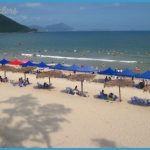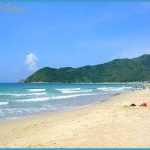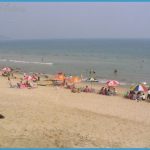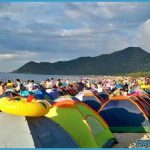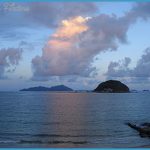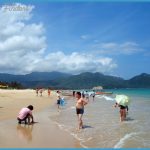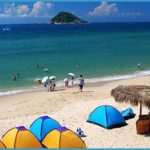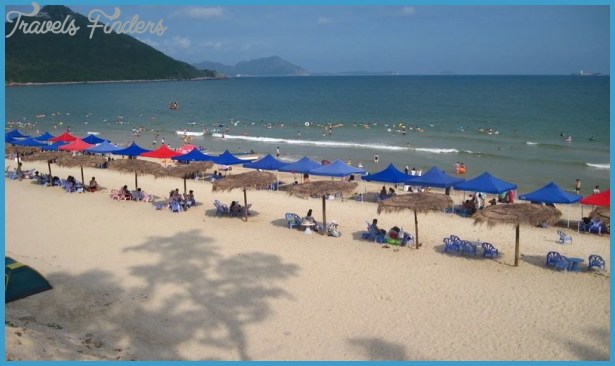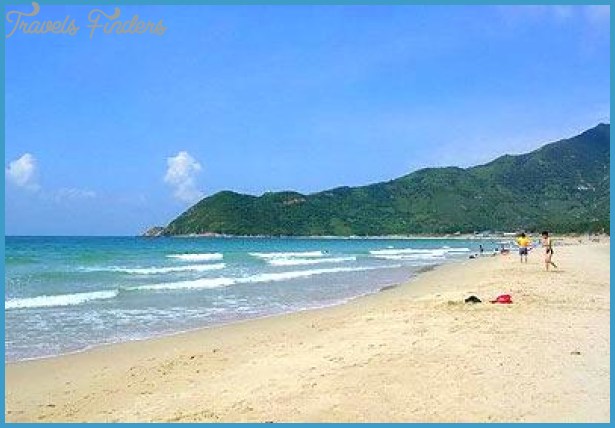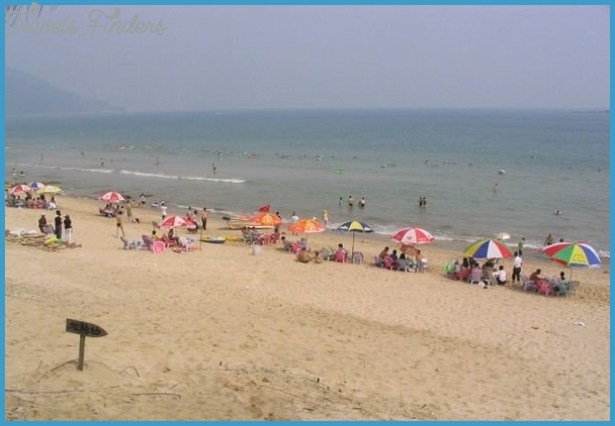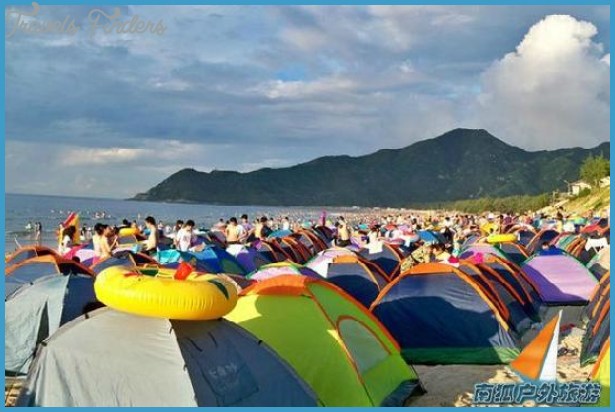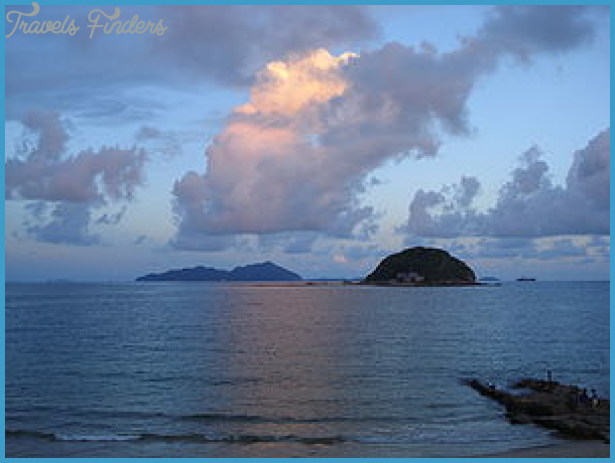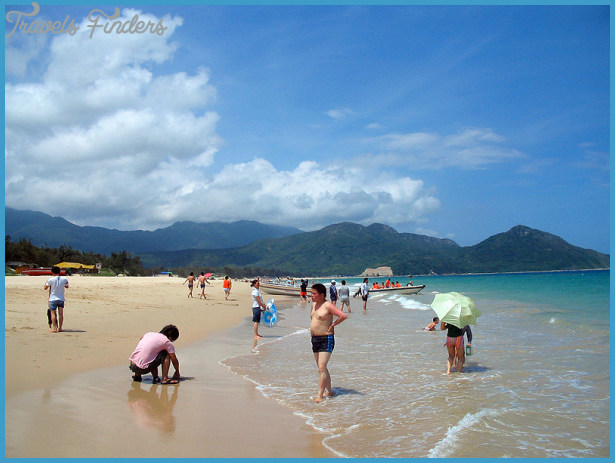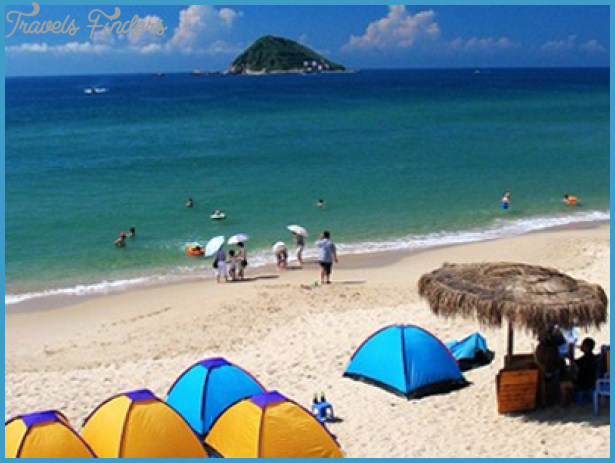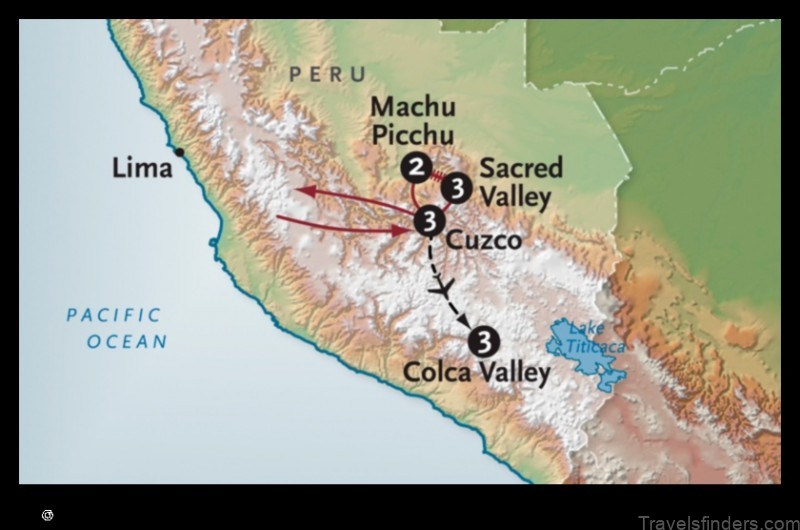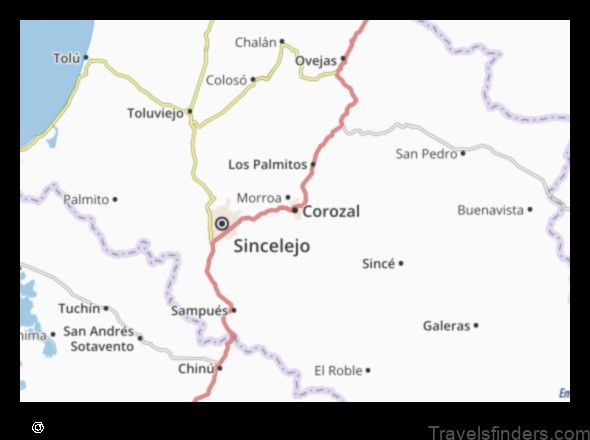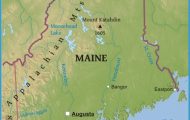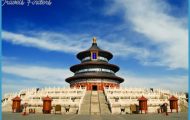Our aim was to find our way to the legendary Xichong Beach. This has a mystical reputation amongst the foreign community of South China as the finest surfing beach around. First, how to get there?
Xichong beach is situated at the southeast corner of the Dapeng Peninsula, deep into the protected National Park area. Buses aren’t plentiful in this area and legal cabs are almost non-existent, so if you want to get to Xichong, we recommend that you get your hotel to arrange a hire car for you. But preparedness isn’t high on our list of virtues so we set out to find Nan’ao’s illegal taxis.
It was noon and no sensible human was around. We saw a couple of mad dogs slathering in the sun and thought we may have just spotted an Englishman but nobody else. Eventually we rounded a corner, made some enquiries of a vendor of cold drinks, and there they were. All of Nan’ao’s illegal cab drivers were gathered in the shade of a street arcade, playing poker in a cloud of smoke. It is rarely recommended by people of business acumen that you should set out to negotiate anything with all the providers en masse. Monopsony has its adherents but never when all your counterparties would lose face by accepting your proffered price. But in the event we settled on an unacceptable price and set out.
Our driver Lao Zhou was from Sichuan and regaled us with stories of bulldozer driving on construction sites and of how he’d come to live among the Hakka. We wound through heavily wooded ravines, occasionally flashing out into brilliantly sun-lit palm fringed lakes. Then down a dirt track and a beach appeared.
Four miles of dazzling white sand backed by majestic Qiniang Mountain and fronting onto a gently breaking azure sea.
A city of 14 million people was only twenty miles away but there was no human life, save a few mid-week shirkers bobbing up and down, safely surrounded by variegated inflatable rings.
Quickly we found a boat to shelter under, removed our clothes, and threw ourselves into the ocean.
It is strongly rumoured that in autumn and winter when the winds swing round to the East, the surf here is good enough for real surfers and when a typhoon is sitting in the Bashi Channel, hopefully moving north, the waves are phenomenal. But this was mid-August and we were sheltered from the prevailing south-westerly winds and the resulting gentle swell and warm waters were just what wimps like us like best. We just lay in the water and bobbed, occasionally up and occasionally down. There was no container shipping or large settlements pouring wastewater into the bay. Consequently, the water was crystal clear with a deep emerald colour that you often read about in travel books for Heaven but rarely see.
Don’t expect to see large resort hotels here or sarong-clad-cuties carrying cold cocktails garnished with pineapple slices to your beach mat. We didn’t see a single elephant offering rides and nobody offered to plait our hair or massage our backs. If you’re thirsty, there are occasional shops offering cold drinks and huts offering local Hakka style seafood meals in very basic surroundings. But we’re old enough to remember when the slight touch of the primitive was what one expected in a beach holiday and it suited us fine.
Other amenities?
There are a couple of places offering basic tent accommodation. We like our comforts so we wouldn’t recommend them, if you’re the adventurous an like roughing, know that the camping option is there. Stalls sell Chinese beach paraphernalia: rubber and plastic tubes so when you’re carried out to sea the sharks have to start on your feet first, towels and more. There is even one merchant who offers surfboards hire: allegedly an Australian enthusiast left behind the surfboards. We cannot vouch for the quality of these boards.
Xichong Beach is situated at the extreme southeast corner of the Dapeng Peninsula. It can be reached by bus No. 360 to Nan’ao and subsequently by car.
Address: Xichong Beach, Nan’ao,

